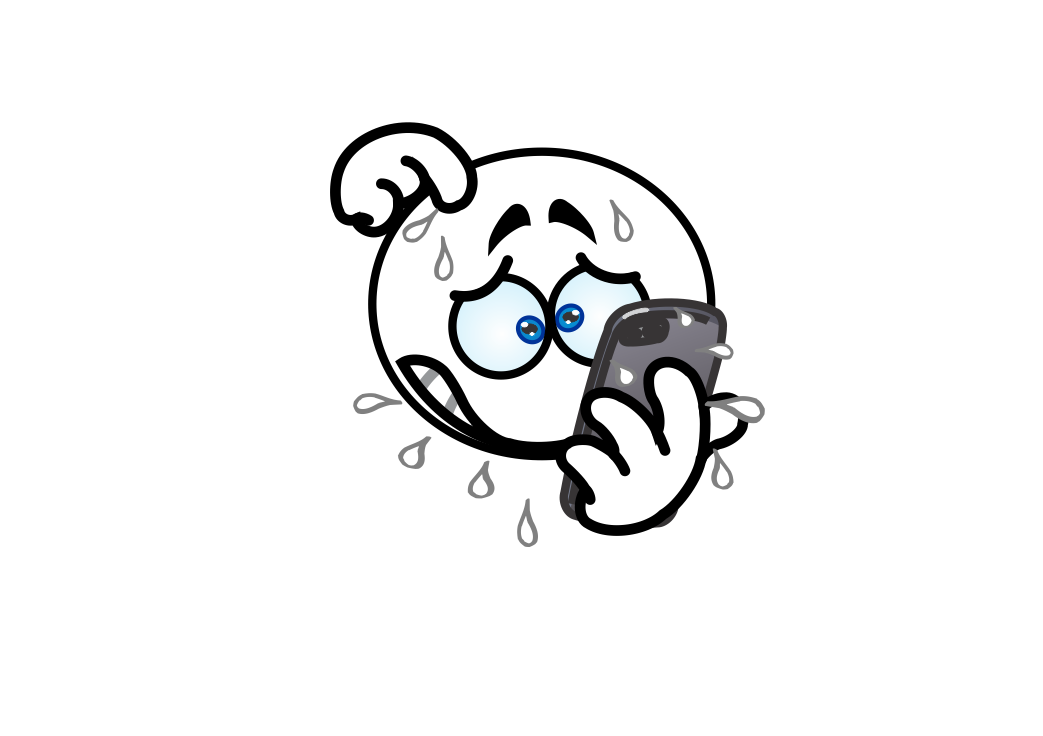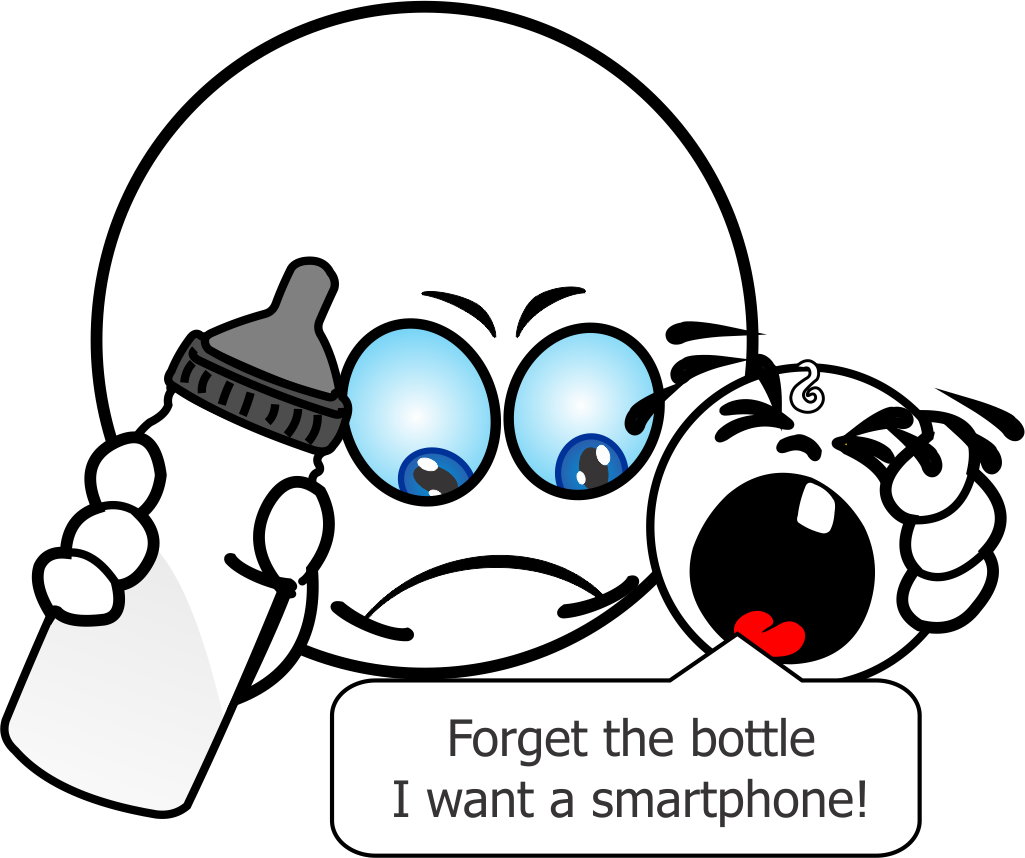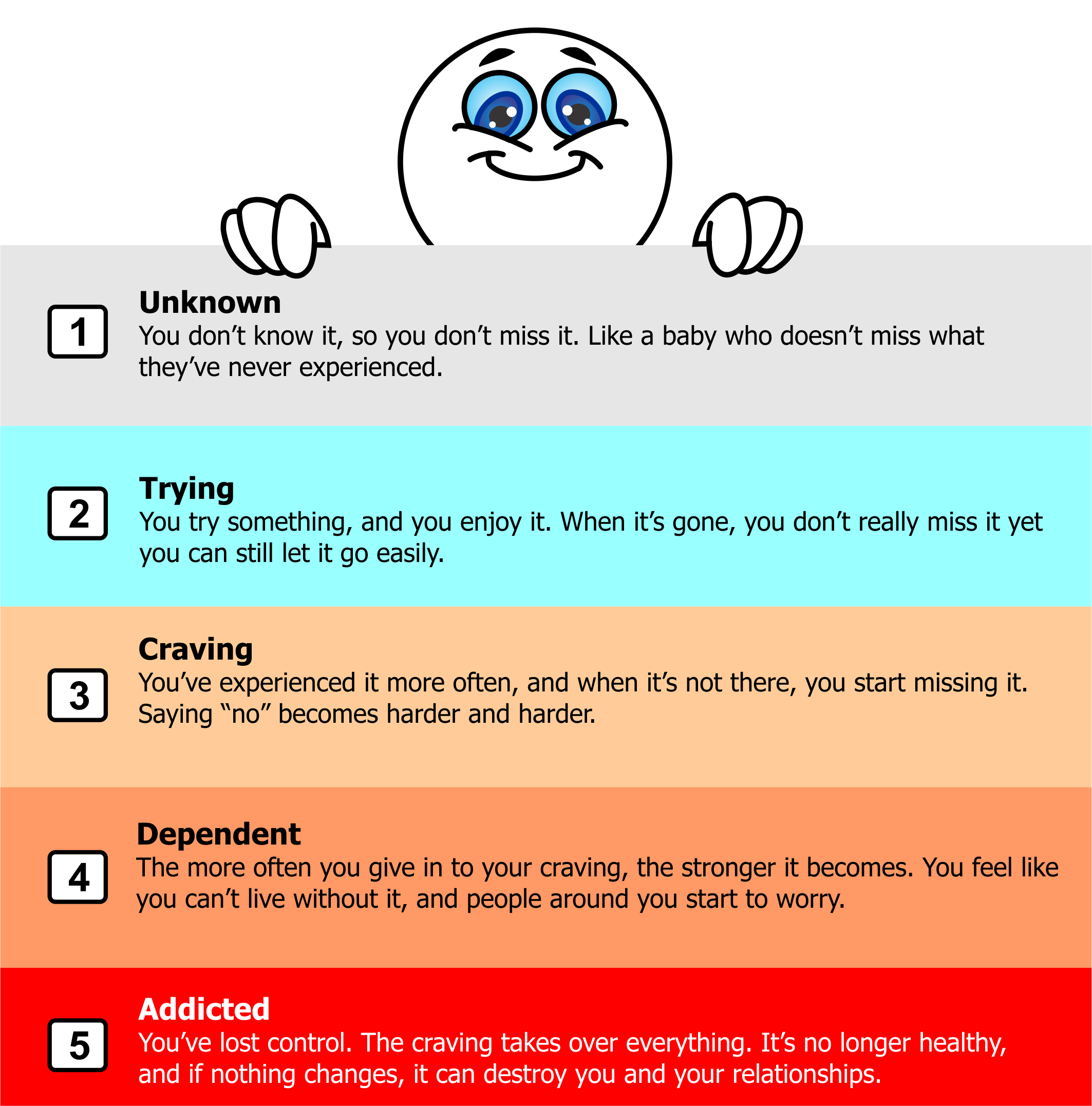From unknown to addicted

At first, it feels like freedom.
A young person gets their first smartphone shiny, fast, full of possibilities. They use it to send messages, play games, watch videos. Every time they put the phone down, there’s a moment of satisfaction. But soon something starts to change. When the phone is not in their hand, they begin to miss it. The urge to check just one more message, to play just one more game, grows stronger and stronger. And each time they give in to that feeling, the pull becomes even harder to resist. Games last longer. Videos keep playing. The world outside slowly fades away. Friends are waiting to play outside, but they don’t even notice anymore.
When the phone is out of reach, they feel restless, even angry, sad, or afraid though they don’t really know why. They stop caring for themselves, and a dark thought creeps in: "Does it even matter anymore?" And then comes the hardest admission: "I can’t stop. I’m addicted." But it doesn’t have to stay that way.
With help, and with clear limits, it’s possible to take control again to make the phone a useful tool instead of a chain. A smartphone can be fun, helpful, and easy, but only when you stay in charge… not the other way around.

Food for thought
A smartphone is a tool but even the best tools can hurt you if you don’t handle them wisely.
You can always ask yourself: Am I still free, or am I letting my phone decide for me?
From unknown to addicted

Which step are you in? Be honest with yourself. Are you still just trying or craving? Or have you already become dependent?